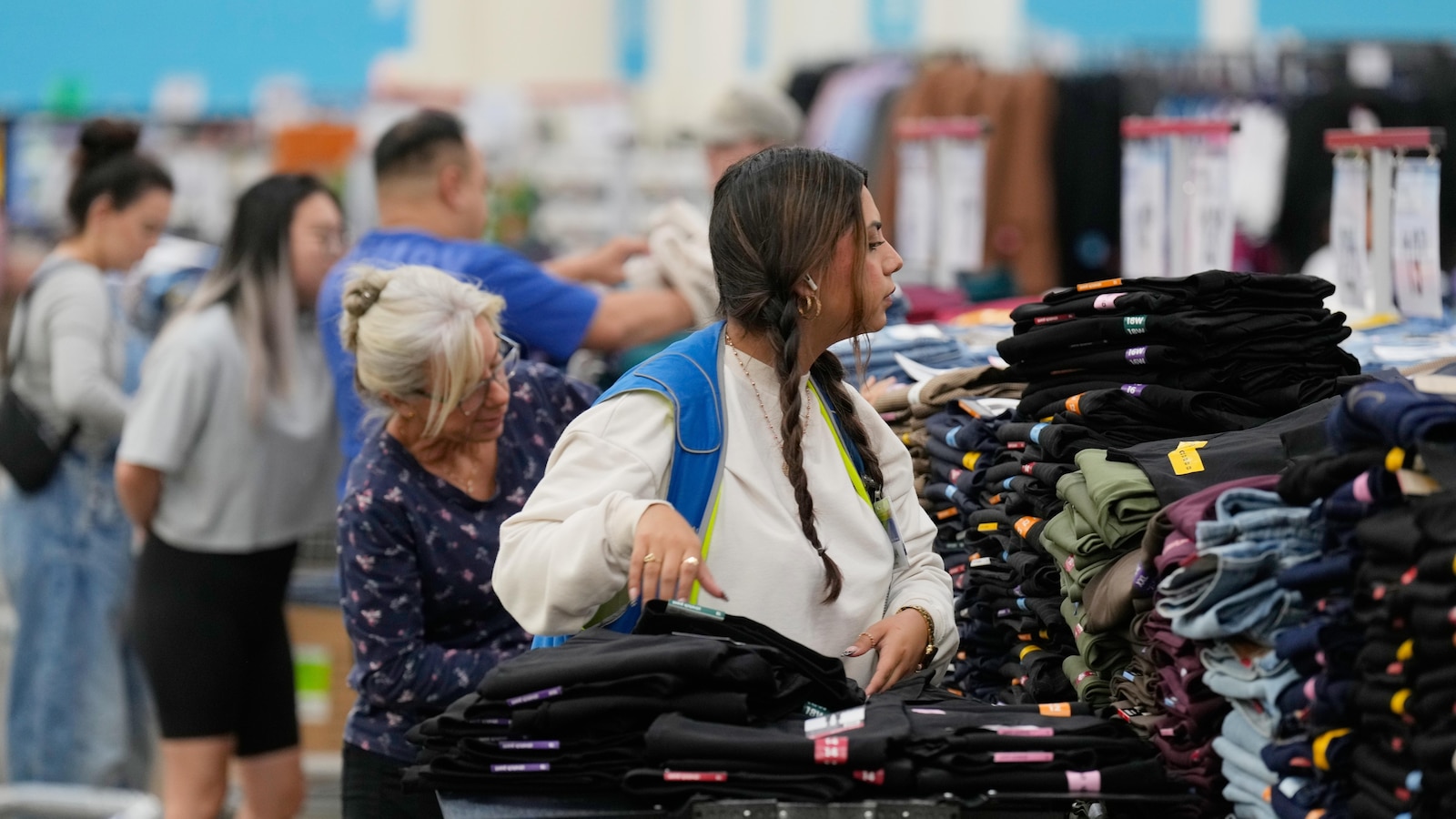Skeet Ulrich and Alicia Witt are set to star in an upcoming satirical horror-comedy, The Big Kill.
As per The Hollywood Reporter, Todd…

Skeet Ulrich and Alicia Witt are set to star in an upcoming satirical horror-comedy, The Big Kill.
As per The Hollywood Reporter, Todd…

Getafe, Spain, 24 October, 2025 – SpainSat NG-II, the second Airbus-built new generation secure communications satellite for Spain, has been successfully launched from the Kennedy Space Center, in the U.S.
The launch of this second satellite…

Before a cell can split into two, it must first copy all of its chromosomes so each new cell inherits a complete set of genetic material. For years, researchers believed that as this process unfolded, the genome’s intricate three-dimensional…

A warning has been issued to those planning to set off fireworks after the cancellation of organised displays.
Truro’s annual bonfire and firework display has been cancelled following concerns over traffic congestion, along with another display organised by Falmouth Fire Station.
Cornwall Fire and Rescue Service said the event had been cancelled as it could not be delivered “to the standard of safety and organisation that our community rightly expects”.
It urged those planning to set off fireworks at home to “only buy fireworks with a CE mark [those that comply with the current safety standards]”.
Truro City Council said the decision to cancel the event on 6 November was made after consulting with the safety advisory group.
Council clerk David Rodda said although the news would be “disappointing” for many residents, safety was the authority’s “highest priority”.
The fire service warned “children, including babies and toddlers, suffer over half of all firework-related injuries”.
It advised they should be “closely supervised” around sparklers, bonfires and fireworks, and those planning private events at home should “follow the instructions carefully and let your neighbours know in advance so they can keep pets indoors”.

Building on progress made at the AI Regulatory and International Symposium (AIRIS) in Seoul in 2024, the World Health Organization (WHO) and the Ministry of Food and Drug Safety (MFDS), Republic of Korea successfully co-hosted AIRIS 2025 in Incheon, in the Republic of Korea. The meeting brought together regulators, academia, industry and WHO to shape the responsible use of artificial intelligence (AI) in health.
“As AI becomes more sophisticated and its health applications expand, so must our efforts to make them safe, effective, ethical, and equitable,” said Dr Tedros Adhanom Ghebreyesus, WHO Director-General.
Held under the theme “Regulation for AI, Together for Tomorrow,” AIRIS 2025 served as a global platform to discuss the safe, ethical, and effective use of AI in health. The symposium showcased leading regulatory frameworks and best practices for the use of AI across the medical product lifecycle. Participants underscored the importance of ensuring that AI systems are developed and deployed in ways that are safe, ethical, inclusive and accountable.
The Outcome Statement from AIRIS Incheon 2025 calls for:
By promoting transparency, equity and accessibility in AI governance, AIRIS 2025 reinforced its role as a key global platform to advance safe and responsible use of AI in health WHO and MFDS reaffirmed their commitment to continue co-hosting AIRIS in the coming years, expanding its reach and impact.

In June 1977, Roberto Rossellini died suddenly of a heart attack, home in Rome, less than a week after serving as jury president of the Cannes film festival. The director’s daughter Isabella – the fourth of his seven children – was then in…

Hidden Voices: Queer Artists in Exchange, which mixes musical and literary performance to put the spotlight on “the all too often hidden voices of queer composers Franz Schubert, Frédéric Chopin, Pyotr Ilyich Tchaikovsky, Ethel Smyth,…

WASHINGTON — Friday’s inflation report is likely to show that consumer prices worsened in September for the second straight month as President Donald Trump’s tariffs have lifted the cost of some groceries and other goods.
The report on the consumer price index is being issued more than a week late because of the government shutdown, now in its fourth week. The Trump administration recalled some Labor Department employees to produce the figures because they are used to set the annual cost-of-living adjustment for roughly 70 million Social Security recipients.
Friday’s inflation report will be the first comprehensive economic data to be released in more than three weeks and will attract intense interest from Wall Street and officials at the Federal Reserve. Fed officials are cutting their short-term interest rate to buoy the economy and hiring, but they are taking some risk doing so because inflation is still above their 2% target.
The issues of affordability and the cost of necessities are gaining in political importance. Concerns over the costs of rent and groceries have played a key role in the mayoral race in New York City. And Trump, who has acknowledged that the spike in grocery prices under President Joe Biden helped him win the 2024 election, has been considering importing Argentine beef to reduce record-high U.S. beef prices, angering U.S. cattle ranchers.
The cost of ground beef has jumped to $6.32 a pound, a record, in part because of tariffs on imports from countries such as Brazil, which faces a 50% duty. Years of drought that have reduced cattle herds have also raised prices.
Friday’s report is forecast to show that inflation rose 3.1% in September from a year earlier, according to a survey of economists by data provider FactSet. That would be up from 2.9% in August and the highest in 18 months. On a monthly basis, inflation is projected to be 0.4% in September, the same as in August.
Excluding the volatile food and energy categories, core inflation in September was likely 3.1% for the third straight month. On a monthly basis, core prices likely rose 0.3%, economists project, also for the third straight month.
Such figures are unlikely to deter the Fed from cutting its key rate by another quarter-point when it meets next week, to about 3.9%. It would be the second cut this year and is driven by Fed Chair Jerome Powell’s concerns that hiring is weakening and poses a threat to the economy.
Even as inflation has fallen sharply from its peak of 9.1% more than three years ago, it remains a major concern for consumers. About half of all Americans say the cost of groceries is a “major” source of stress, according to an August poll by The Associated Press-NORC Center for Public Affairs Research.
And the Conference Board, a business research group, finds that consumers are still referencing prices and inflation in responses to its monthly survey on consumer confidence.
Still, inflation has not risen as much as many economists feared when Trump first announced a sweeping set of tariffs. Many importers built up inventories of goods before the duties took effect, while Trump reduced many import taxes, including as part of trade deals with China, the United Kingdom, and Vietnam.
And many economists, as well as some Fed officials, expect that the tariffs will create a one-time lift to prices that will fade by early next year. At the same time, inflation excluding the tariffs is cooling, they argue: Rental price increases, for example, are declining on average nationwide.
Yet Trump is imposing tariffs in an ongoing fashion that could raise prices in a more sustained fashion.
For example, the Trump administration is investigating whether to slap 100% tariffs on imports from Nicaragua over alleged human rights violations. The prospect of such steep duties is a major headache for Dan Rattigan, the co-founder of premium chocolate maker French Broad, based in Asheville, N.C.
“We’ve been shouldering some significant additional costs,” Rattigan said. The United States barely produces any cocoa, so his company imports it from Nicaragua, the Dominican Republic, and Uganda. The imports from Nicaragua were duty-free because the country had a trade agreement with the United States, but now faces an 18% import tax.
Cocoa prices have more than doubled over the past two years because of poor weather and blights in West Africa, which produces more than 70% of the world’s cocoa. The tariffs are an additional hit on top of that. Rattigan is also paying more for almonds, hazelnuts, and chocolate-making equipment from Italy, which has also been hit with tariffs.
French Broad raised its prices slightly earlier this year and doesn’t have any plans to do so again. But after the winter holidays, “all bets are off … in what is a very unpredictable business climate,” Rattigan said.

LONDON — Britain’s most prestigious literary prize is getting a younger sibling.
The Booker Prize Foundation announced Friday that it is setting up the Children’s Booker Prize alongside its existing awards for English-language and translated…